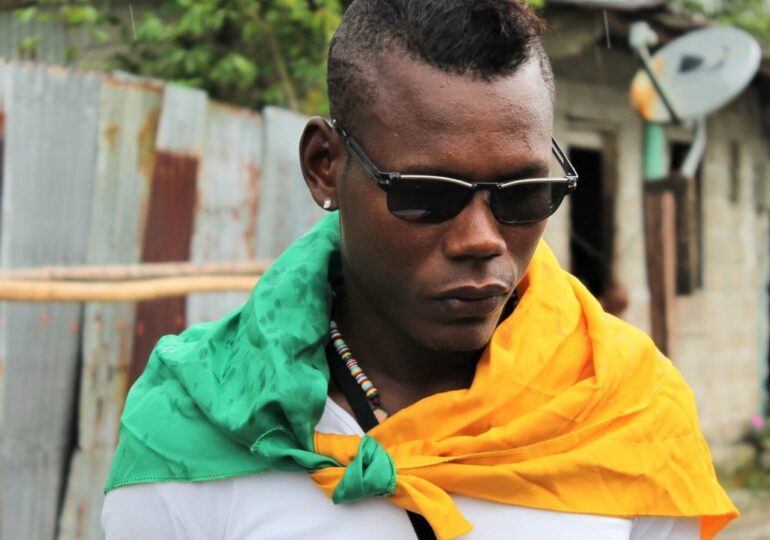Patrocinio Bonilla was well known and respected for his leadership and commitment to the movement for the rights of peasant, afro-descendant and indigenous communities in Alto Baudó, Chocó. He was a founder of the indigenous rights movement Asokinchas, a member of the Congreso de los Pueblos (Congress of the Peoples) and the Coordinador Nacional Agrario (National Farming Council) – CNA.
According to a report by News Click “Patrón lived in Chocó in north western Colombia, where 96% of the people identify as Afro-Colombian or as part of the Emberá Indigenous community. Chocó is treated as a backwater of the country, with no real infrastructure and little social policy to enhance the lives of its population.
“From a very young age,” a friend of Patrón’s told us, “he wanted to be a professional football player.” He went to Medellín, where he tried his luck with Atlético Nacional, even though he was a fan of América de Cali (a team loved by Afro-Colombians). His poverty prevented him from being able to stay in Medellín to train, so he returned home to Pie de Pató in Chocó.
Patrón organised a football tournament in the area. He told his friend Germán Bedoya—a founder of the national agrarian movement (Coordinador Nacional Agrario, or CNA)—that if he could keep the young people occupied with football, then they would not be so easily recruited into the narco-trafficking and paramilitary organisations that preyed on these communities. The narco-traffickers needed the land to grow cocaine, and they needed the young people as their disposable employees. This is what Patrón tried to prevent through football.”
On 11 August, 2020, fifteen members of the community were out cutting wood in the village of Santa Rita in Alto Baudó, when they were rounded up by a group of paramilitaries. After about an hour everybody was released except Patrocinio who was shot dead a few minutes later.
Patrón’s body was brought back to his community in Alto Baudó, where it was washed and dressed in white sheets. Rituals of burial rooted in Afro-Colombian traditions were then performed. When his mother, sisters, cousins, and son tried to come for the ceremony, they were prevented by the same paramilitary groups (who did this within sight of the army and the police). Eventually, only his mother, his son, and one sister were able to get through to attend the ceremony.
These killings are not random. They are part of an assault on the Afro-Colombian and Indigenous communities in north western Colombia, particularly against anyone who resists the power of the narco-traffickers and their paramilitaries; they are also an attack on the Colombian left, since people like Patrón are affiliated with groups such as CNA and the Congreso de Los Pueblos. Since the 1990s, these groups have evicted large numbers of subsistence farmers and killed many political leaders. »

